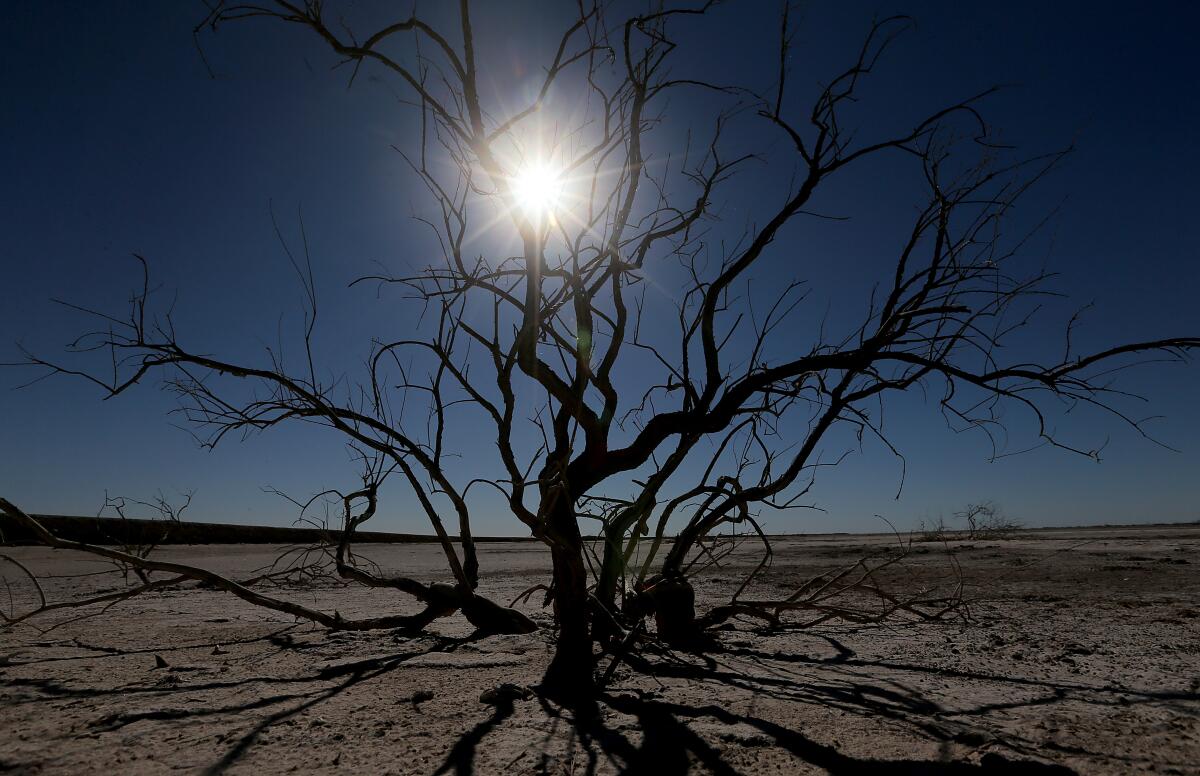Letters to the Editor: Why is California stopping the only guarantee of more water?

- Share via
To the editor: Reading about the reduced water flow in the Colorado River yet again, potentially leading to new restrictions if reservoir levels drop much further, I can’t help but think of recent articles on the creation of the Sites Reservoir in the Sacramento Valley and the refusal of the California Coastal Commission to grant a permit to for a desalinization plant in Huntington Beach.
As the existing reservoirs filled by the Colorado, Sacramento and Owens rivers show, you can’t store water that you don’t have. The only net fresh water gain would have been from the desalination plant.
The Coastal Commission cited potential socioeconomic impacts of expensive water as a critical rationale for the refusal. Really.
Rich Holland, Aliso Viejo
..
To the editor: Ferdinand de Lesseps was the 19th century French engineer responsible for the Suez Canal in Egypt. He also started work on the Panama Canal. Both waterways remain important trade routes made possible by his vision.
One of his unrealized projects was to create a “Sahara Sea.” His notion was to build a canal from the Mediterranean Sea to the Sahara, restoring the ancient sea that had long ago evaporated.
As we are facing rising sea levels and climate change, perhaps it would help to restore inland seas that are now deserts, using water from our rising oceans. While sea water is not potable, it adds humidity to the air, lowers temperatures through evaporation, causes additional precipitation and restores ancient ecosystems. These calm inland seas are ideal for aquaculture as well.
In California more than 100 years ago, the Salton Sea was accidentally created and persists to this day. The notion that we can restore ancient seas is not far-fetched. California has more than a century of experience moving water efficiently and at low cost.
We can shore up the Salton Sea and restore seas in Death Valley and other low-lying deserts to help mitigate climate change. We do not have to be helpless victims of global warming.
Alan Kabakoff, Calabasas
..
To the editor: The end of irrigation as we know it is nigh, and what are we doing about it? We are providing millions of gallons of water to farmers growing almonds, pomegranates, pistachios and walnuts, all of which are voracious water users in a drought-prone state.
We don’t “need” any of these. It’s time for our state officials to get realistic and deny water deliveries for these crops.
Bob Merrilees, Camarillo
..
To the editor: Scary now? What if the drought continues for years? This is not a local, regional, statewide or western states dilemma. Our country, if not the world, benefits from our agriculture, goods and services.
The No. 1 priority for our country is recognizing that our climate is changing and finding solutions. Water has to be moved from where there is an abundance to where there is a scarcity.
This solution has been used throughout history — consider the aqueducts of the Roman Empire.
Richard Melniker, Los Angeles



